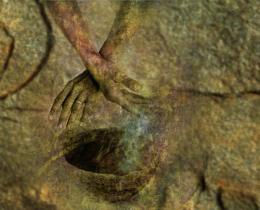People connect to spirit in different ways. Some sit on a meditation cushion and seek stillness, while others move wildly and let their arms shake and feet stomp.
Katie Toohil of Dallas, Texas, has been dancing since she was 3 years old. She started with ballet, jazz, and tap, and later found musical theater. By the age of 16, she taught dance classes and eventually she created her own performances. She now teaches JourneyDance™, a style that uses simple, guided movement sequences and free exploration to help dancers reconnect with their natural state of joyous well-being.
“Dancing connects me to my soul and spirit by allowing me to use all parts of myself, from my body to my brain to my emotional being to my connection with my highest self,” she says. “Finding JourneyDance was such a gift for me because the process allows me to examine what's present in my life and let it move and transform. It's a process for my physical, mental, emotional, and spiritual sides.”
While many modern types of dance can help facilitate a spiritual connection, this is not a new concept. Dance has been used for centuries by many cultures to connect with spirits and gods.
Native Americans from the Great Plains used the Sun Dance as a way to make a connection to spirit, or spiritual powers, to enhance the well-being of friends, families, and communities. Classical Indian dance, in its earlier forms, was performed for the gods, many of whom were depicted as dancing themselves.
“People throughout the world have danced since the beginning of time to rhythms that were sacred and honored the elements and cycles of birth and death,” says 5Rhythms® dance teacher Lucia Rose Horan. “It has only been for a short time that people have forgotten to dance.”
5Rhythms is a modern ecstatic dance practice that teaches students to be in their body to help ignite creativity, connection, and community. Dancers move with each rhythm—Flowing Staccato Chaos Lyrical Stillness™—to explore their body, mind, and soul. It is referred to as a form of moving meditation.
Gabrielle Roth, creator of 5Rhythms, wrote in Sweat Your Prayers: Movement as a Spiritual Practice, “Sweat is an ancient and universal form of self-healing, whether done in the gym, the sauna, or the sweat lodge. I do it on the dance floor. The more you dance, the more you sweat. The more you sweat, the more you pray. The more you pray, the closer you come to ecstasy.”
Another goal in many conscious dance practices is to use the physical connection to the body to access a higher self.
Body-mind psychotherapist Rachel Fleischman developed Dance Your Bliss™, a form of movement therapy that helps dancers tap into their unique rhythm. “When we get out of our heads and into our feet, we access innate wisdom in the body and discover more creative expression, freedom, and joy,” she says.
JourneyDance creator Toni Bergins says that JourneyDance emerged out of a desire to heal on an emotional level. Looking for a nonfitness oriented way to exercise that also benefited her mind, she found dance and began an emotional education by noticing how to shake off tension in her shoulders or dance through a feeling of stress.
“I would be dancing and feel so present, and I knew this was what people are aiming for in meditation,” Bergins says. “Dance is like a purge; it’s an emotionally expressive place to release and allow.”
She also notes that dancing without a partner and without the structure of dance forms like ballet allows us to access deeper parts of ourself. We get to experience body sensations and memories and discover inner resources to create the movement.
Ultimately, she says, this exploration can help connect us back to our source. “I used to think I was a body, praying to a spirit source. But I realized on the dance floor that I am the soul. I am not a body with a soul. The music and me become one. I can jam out and feel that funky wildness and that spirit is me.”



